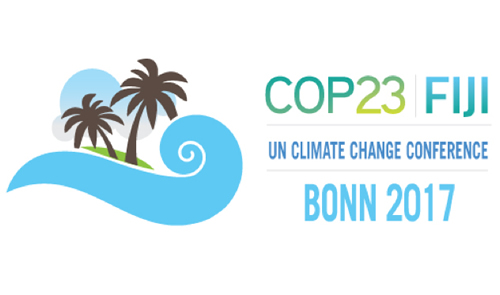Ghana is mobilizing $22m for Climate commitments
 Ghana is mobilising the about $22. 4 billion needed to implement her Nationally Determined Contributions (NDCs), over a 10-year period, as part of her commitments to the Paris Climate Change Agreement.
Ghana is mobilising the about $22. 4 billion needed to implement her Nationally Determined Contributions (NDCs), over a 10-year period, as part of her commitments to the Paris Climate Change Agreement.
There are 31 actions within the NDCs that cut across seven important sectors, including Energy, Transportation, Agriculture, Forestry, Waste Management and Industry.
At a side-event at the on-going UN Conference of Parties (COP23) in Bonn, Germany, Ghana’s technocrats on Climate Change issues pledged the country’s commitment to doing her part towards combating Climate Change and adapting to its effects.
The event was hosted by the Ghana-China South-South Cooperation on renewable Energy Transfer, with the UNDP playing the facilitation role.
Professor Kwabena Frimpong-Boateng, Ghana’s Minister of Environment, Science, Technology and Innovation, said in a speech read on his behalf that the country was very much committed to the global climate agenda.
Mr Kyekyeku Yaw Oppong Boadi, the UNFCCC Focal Person in Ghana, read the Minister’s speech at the event, which also provided the platform to demonstrate to the world what Ghana was doing within the Climate agenda and how it was preparing through policies, programmes and projects to undertake activities within the NDCs.
The Minister said one key sector in the Ghana NDCs was energy, which played a key role in driving the economies of almost all nations.
He said in the NDC, 32 per cent of the interventions were focused on the energy sector, with renewable energy, the driving force of clean energy, covering 73 per cent of the interventions.
“In an effort towards the attainment of these objectives, the Government of Ghana has launched several projects,” he said. “One of these is the collaboration that has been launched between China and Ghana to develop trilateral cooperation in the renewable energy sector.
“These projects are bringing together all the policy prescriptions and strategies through the renewable energy master plan that we have for the country.”
The event was also used to share the key objectives of Ghana’s renewable energy plan and other actions being undertaken under the trilateral agreement.
It was held on the theme: “Demonstrating Progress in Ghana’s Climate Agenda, Trilateral Cooperation in Renewable Energy, cities and Climate”.
The occasion also helped to demonstrate the progress in Ghana’s climate change agenda, especially, in the areas of cooperation in renewable energy, considering the challenges the country faces over time within her energy sector.
Mr Daniel Tutu Benefor, a director at the Climate Change Unit of the Environmental Protection Agency, (EPA) said the NDCs, which were also very much development focused, cast within the development objectives of the country.
“The focus is really to help in reducing climate risk and reducing emissions in the context of the global agenda,” he stated.
He said to enable Ghana to implement its Climate commitment it was currently mobilising resources from all sources, both private and public institutions, as well as pursuing early ground actions in various sectors.
“These are very important efforts in place to lay the foundation for full implementations of the NDCs in the coming years,” Mr Benefor noted.
Mr Seth Osafo, a Consultant in International Environmental Law, who chaired the event, noted that the developed countries were more able to cope with the impact of climate change because of their wealth whereas developing countries, particularly, Africa, which was the most vulnerable to the adverse impact of climate change, was the least able to cope with the impacts.
He said Africa was also the least contributor to climate change; was but was having difficulty in coping with the impacts.
Mr Osafo said the cumulative emissions of greenhouse gases from Africa was less than six per cent of the global total.
“So we emit very little but then we are affected the most; however, the Climate Change Convention, the Kyoto Protocol and the Paris Agreement enable us to join the international community to address these impacts of climate change.
He called on all countries to commit to the fight of reducing global warming to 1.5 per cent as agreed in the Paris agreement.
Meanwhile, at the Bonn conference, various parties, negotiators and civil society groups continue to meet in one meeting or the other to discuss and express their views towards the attainment of a reduction in current global warming levels.
Some civil society groups are calling for developed countries to get more serious with funding of vulnerable countries to mitigate impact of climate change.
Fiji is hosting the COP23 as the Chair of the event, while the German Government is supporting the hosting.
Delegates from around the globe are hoping to ensure greater momentum for the Paris Climate Change Agreement and to raise the level of ambition needed to address global warming at the two-week conference, which opened on November 6.
Source: GNA
